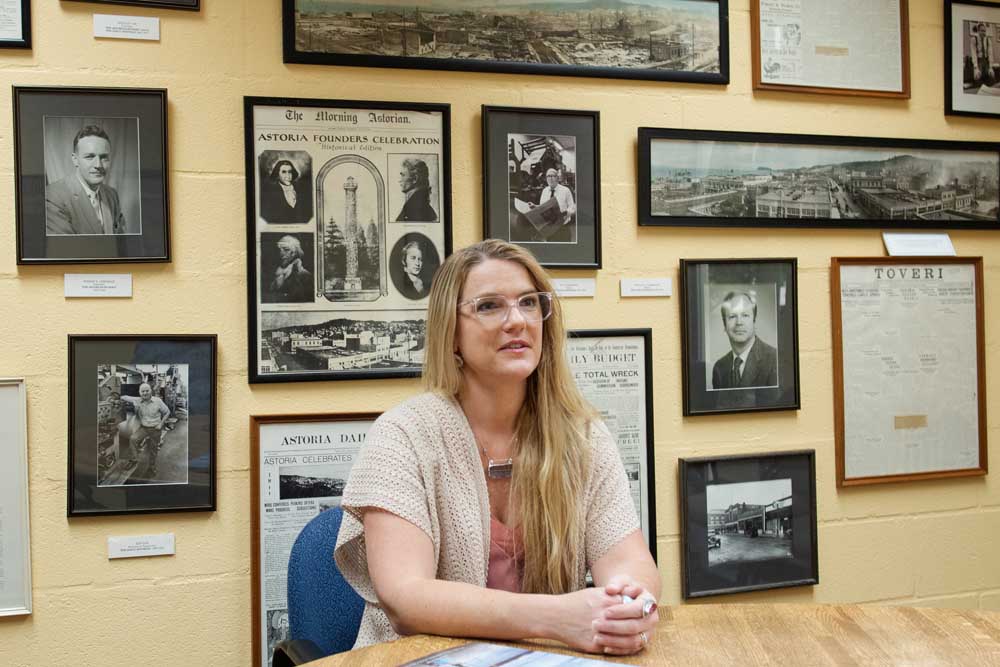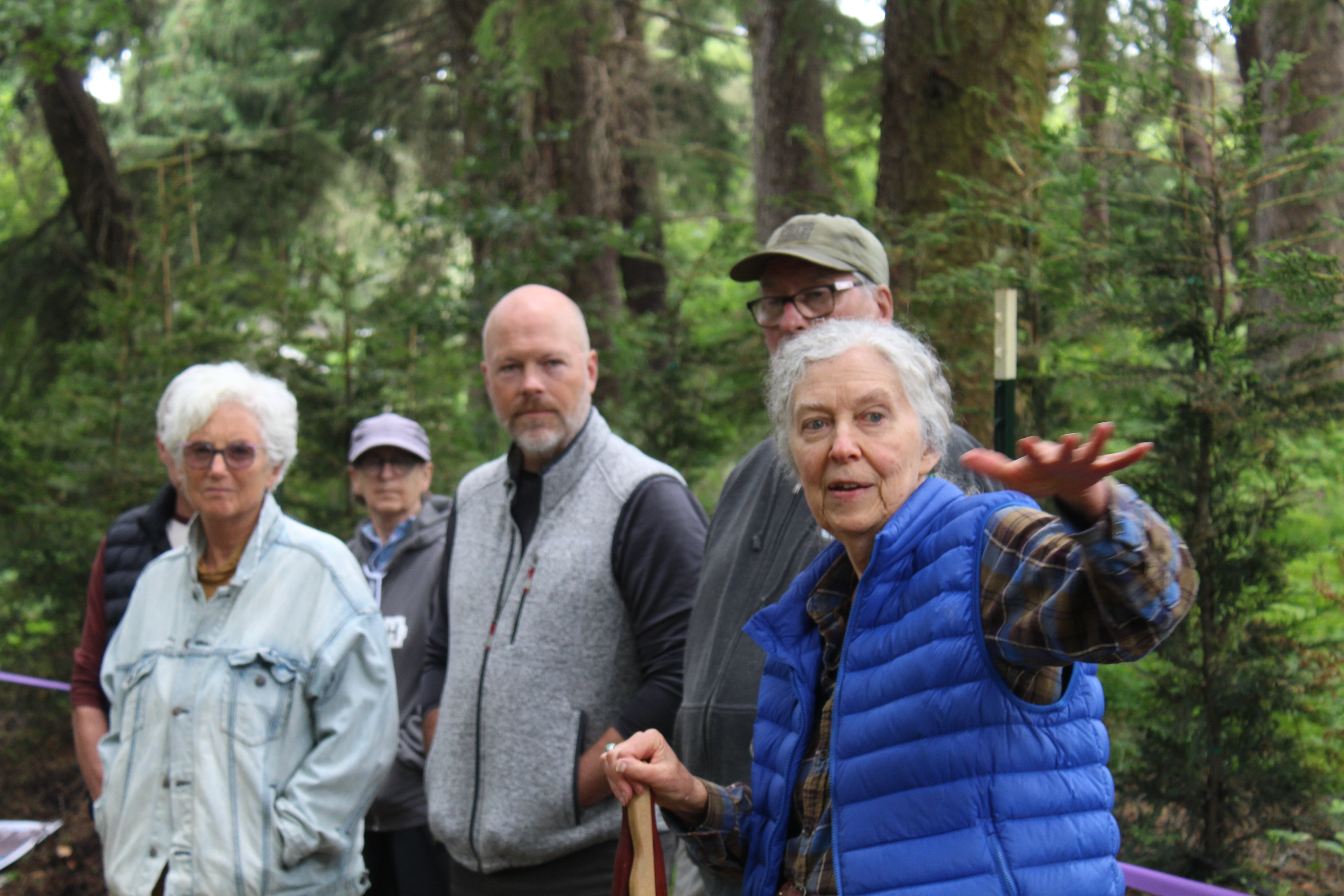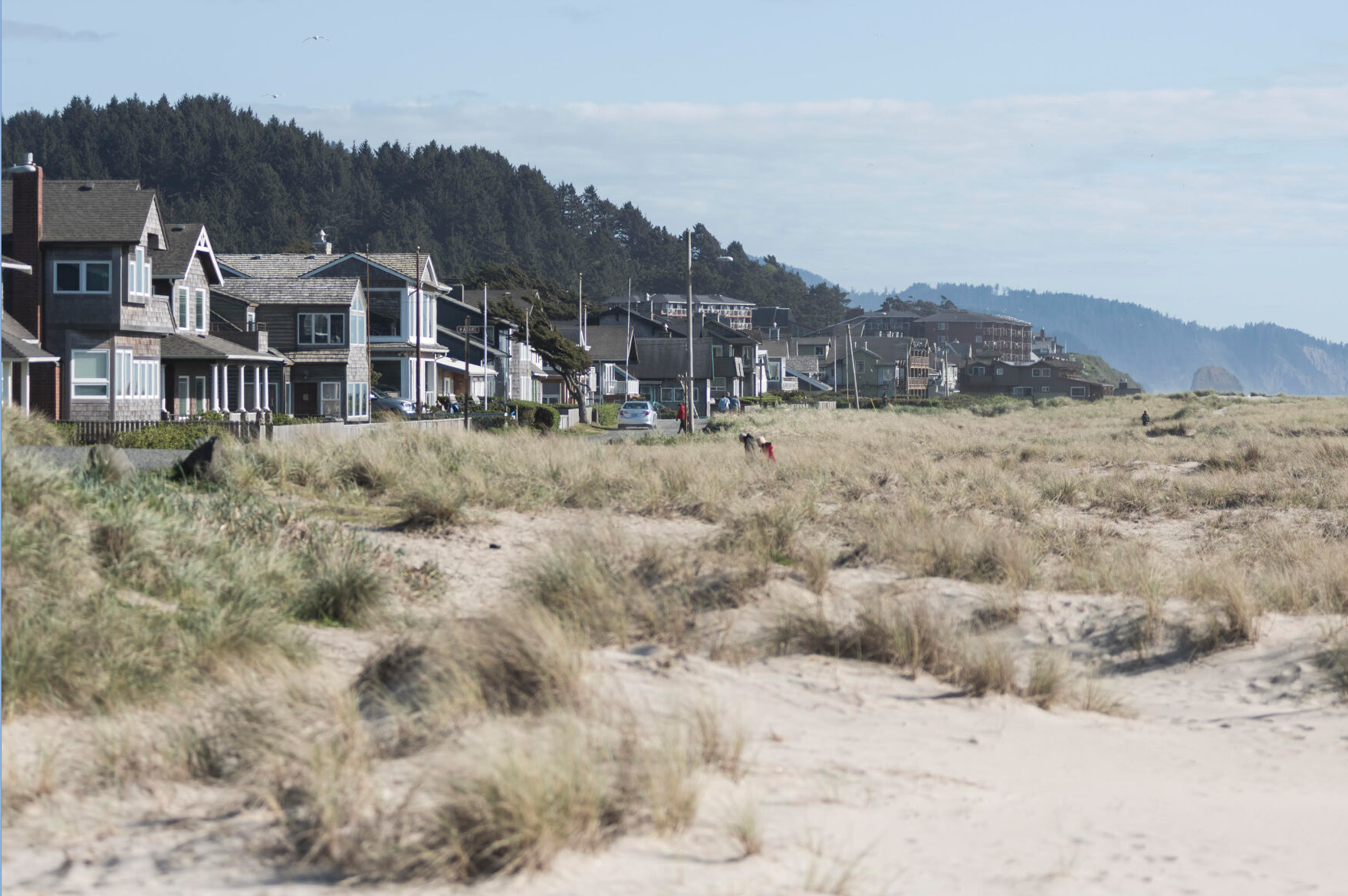Behind the News: ‘The board has the best interest of the college at heart’
Published 12:30 am Saturday, September 30, 2023

- Trudy Van Dusen Čitović is chairwoman of the Clatsop Community College Board.
Clatsop Community College has had a rocky few months.
Trending
After behind-the-scenes negotiations, Chris Breitmeyer and the college board reached a separation agreement in May to end his time as president a year before his contract expired. Three board members resigned, citing Breitmeyer’s departure and disagreements over the direction of the board.
Trudy Van Dusen Čitović, who took over as board chairwoman, and Kevin LaCoste, the interim president, briefed city leaders in Astoria and Warrenton in August on the college’s dire financial situation.
This month, LaCoste announced a leadership restructuring that eliminated the roles of vice president of academic affairs and vice president of finance and operations.
Trending
“I want the public to know that the board has the best interest of the college at heart, and sometimes that means making tough decisions,” Van Dusen Čitović said.
Van Dusen Čitović was elected to the seven-member college board in May 2021 after a campaign where several candidates called for change.
She is an owner of Van Dusen Beverages Inc., the Rosebriar Mansion vacation rental and wedding venue, Fire Station Yoga and the Van Dusen Mercantile.
In an interview, Van Dusen Čitović discussed the financial and leadership challenges facing the college.
Q: We knew there were leadership tensions at Clatsop Community College. But we were a little surprised, like many others, when Chris Breitmeyer and the college board reached a separation agreement and three board members resigned in May. Obviously, there were differences of opinion over Breitmeyer’s performance as president and the direction of the college board. Now that there has been some space between those events, what factors do you believe led to that disruption?
A: I would say the difference comes down to the perspective that the board members had on the role of the board, which has been documented in the newspaper as well as in the resignation letter of Sara Meyer.
It’s a really tough position to be in as a board member on any of these types of elected boards, whether it’s a special district or the college, because your mandate is a fiduciary responsibility to that institution, as well as hiring the executive director, or the president in this case.
The role of the board at that point becomes advisory and the president, or executive director depending on the board, is in charge of running the institution. And there comes a point where if the institution is not going in the direction that the board feels it should, whether that’s strategically, financially, etc., a change needs to happen.
And we had gotten to a point where there were a lot of questions — enough to where we thought it warranted a discussion among the board members. And that really never was allowed to come to fruition, partly because Chris Breitmeyer secured an attorney and the only thing the board voted on or got to discuss was creating a special subcommittee to negotiate that.
If there was one thing that I could go back and change, it would be to have the opportunity for the board members to discuss this in any type of meeting, whether it’s executive session or open session. And that really never got to happen in the way that maybe it could have.
So that is the lead up to what happened and, following that, was a big shock to all of us that three of the board members resigned. But I certainly respect their prerogative to do that, and I wish that there had been a way to work through any issues.
But it put us in a position to be able to bring some fresh eyes to the institution, to the financials, from a board level as well as from an administrative level, and hopefully that will allow us to chart a positive course forward.
Q: You have said that the college is in the most precarious financial position in its 65-year history. That’s an extraordinary statement. Some of the financial projections that have been shared publicly are concerning. Can you walk us through how you came to this conclusion?
A: The main thing is the loss of reserves that have happened over about the last seven to 10 years.
There were a number of major investments made by the institution prior to my tenure, so I don’t have the full information on that. We’ve been trying to sort of go back and reconstruct the process.
But the main things were the software system, which has been well publicized, was about a $3 million expense that ended up coming out of reserves.
Then there was an additional roughly $1.3 million that was spent on a project called MERTS II, which was supposed to have been a new building; $999,000 went to an architectural firm; and another $143,000 went to a consultant who was supposed to have helped raise money and, as far as we could find, that consultant was paid that full amount and raised $32,000, which clearly left the college with a huge debt to pay.
The funds for those expenditures, or that other one, came out of funds that were earmarked to go to finishing Patriot Hall, there were still items left to finish there; the sale of the performing arts center; and reserves.
So that was a big hit to come out with little to nothing to show for it.
So those were big issues that drew down the reserves, in addition to expenditures higher than revenues for several years.
So that’s where you come to a point and you see we’re spending more than we’re making, we have almost nothing in our savings account — to put it in the layperson’s terms — and we have roughly $40 million worth of real property assets that we have not been setting aside money to maintain.
So now there’s tons of deferred maintenance that we can’t pay for and it puts us in a really difficult position.
The other big expenditure that happened in the meantime there was the purchase of the land that MERTS (Marine and Environmental Research and Training Station) sits on — which I didn’t realize this until just recently as Kevin LaCoste was going back through and helping us understand some of this financial history that predates my time and all of the other board members’ time, I believe, except maybe Tim Lyman.
So that was I think just shy of $836,000 that went to buy the 15, 20 acres that MERTS sits on that was being leased prior. The rationale for that at the time was that if this new building was going to be built, they couldn’t get financing for it unless the property was owned. And so that went through without any way to pay for it.
So it’s another example of cash that’s no longer available — not that that’s gone, because we own the land, the land has value — but it’s not liquid and it’s not something that we are in a position to be able to utilize to help us with our near-term concerns.
Q: You have served on the college board since 2021. Some of your fellow board members are also pretty tough and outspoken. Why do you think these financial challenges did not come to light sooner?
A: The financial challenges were there, they just weren’t discussed as financial challenges, I would say, and maybe not viewed that way by the board.
They weren’t presented to the board as financial challenges. And I can’t speak to, prior to my time, what happened or why, but I know that when I joined the board, there was discussion of COVID, which certainly had an impact — had an impact on all higher education, and a significant one.
So that certainly was discussed. And it may have to do with the coinciding of that with some of these other issues that one sort of obscured the other.
Q: When you spoke before the Astoria City Council in August about the financial and leadership challenges at the college, you referenced the financial collapse of the Sunset Empire Transportation District as a reason to have a public dialogue. What do you want the public to know about the college board’s approach going forward?
A: I want the public to know that the board has the best interest of the college at heart, and sometimes that means making tough decisions.
And that certainly applies in my view to what has happened up to now — has been a lot of tough decisions for myself and I’m sure for other board members, but I don’t want to speak to their motivations.
But I am confident that everyone has the best interest of the college at heart, and that we are going to find a way forward. We just want to do it with as much transparency and openness as possible, which isn’t always fun to hear.
Q: Over the past several years, there have been enrollment declines at the college among graduates from local high schools. What message do you have to local high school seniors about why they should consider the college?
A: The college is still an amazing place to get an education. It’s not going anywhere. We have incredible faculty, dedicated staff. We have amazing resources available for students, not to mention that they can stay here in their local community without having to provide separate housing for themselves in another community, etc.
We have a really dedicated foundation and foundation board that are 100% committed to student success.
So, as far as from the student lens, this is the best place to go for higher education. You are really getting something special from it.
It’s only at the highest level — the administrative and board level — that there are concerns. And it’s not a matter of something that’s going to affect a student’s ability to get an excellent education in Clatsop County.









